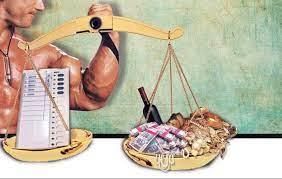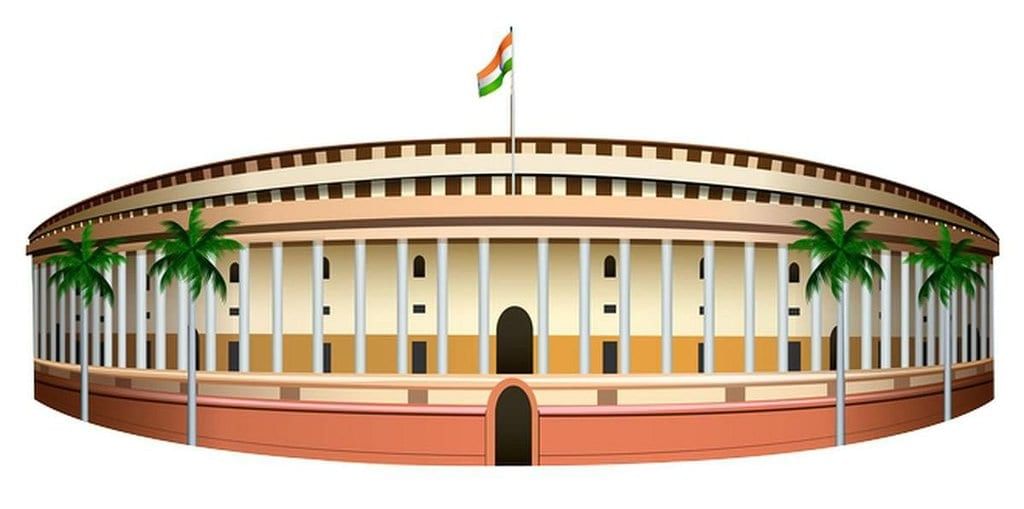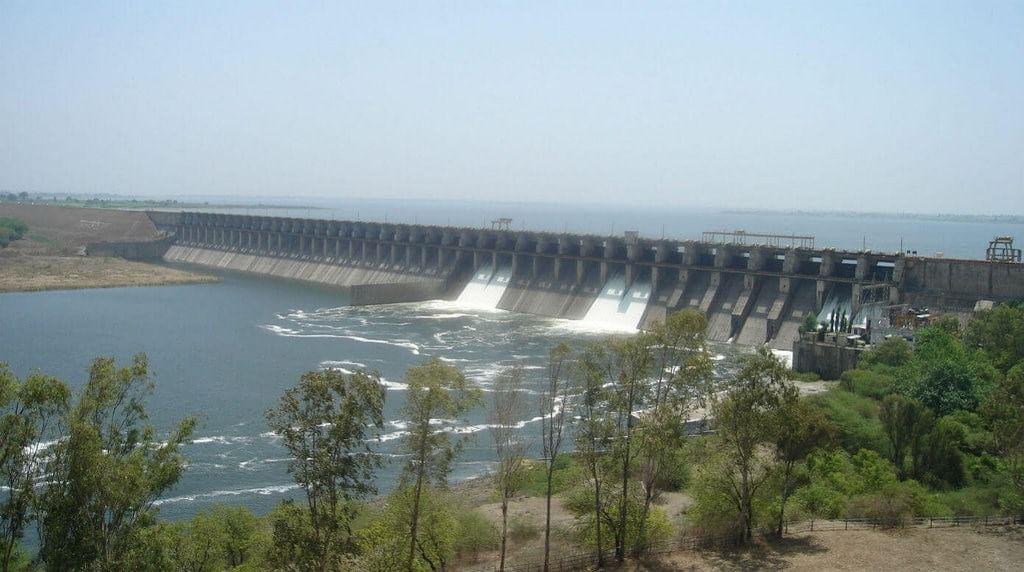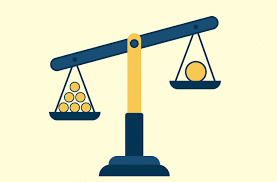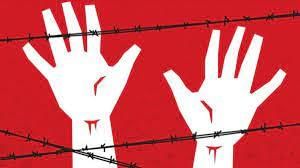Indian Polity and Governance - 4 | Current Affairs & Hindu Analysis: Daily, Weekly & Monthly - UPSC PDF Download
| Table of contents |

|
| Criminalization of Politics |

|
| Parliamentary Privileges of Lawmakers |

|
| Inter-State Water Disputes |

|
| Consumer Protection in India |

|
| Unlawful Association' Under Uapa, 1967 |

|
Criminalization of Politics
- The criminalization of politics entails the active participation of individuals with a criminal record in the political sphere. This involvement extends to criminals seeking election and securing positions in Parliament and State Legislatures. Often, this phenomenon is a result of the close ties between politicians and criminal elements.
- According to a report by the Association of Democratic Reforms (ADR), the 2014 General Elections for the 16th Lok Sabha witnessed 186 (34%) out of the 541 winners having criminal cases filed against them. This marked an increase from the figures in the 2009 elections, where out of the 521 winners, 158 (30%) had declared criminal cases.
What are the reasons for the criminalization of politics in India?
There are several factors contributing to the criminalization of the political landscape in India:
- Use of Force: In pursuit of electoral success, political parties may engage or nominate individuals with a criminal background due to their sway over voters. Many politicians resort to the exertion of force to amass a significant vote bank in the country.
- Financial Influence: Political parties and candidates leverage funds generated through criminal activities to sway voters, garner support, and secure victory in elections. A reciprocal relationship often exists between politicians and criminals, involving the exchange of favors or benefits.
- Deficiencies in Electoral Processes: Voters are frequently uninformed about a candidate's history, qualifications, and pending legal cases, highlighting shortcomings in the functioning of the election machinery.
- Judicial System Inefficiency & Delayed Justice: The judicial system faces a backlog of thousands of cases pending in District Courts, High Courts, and the Supreme Court against these politician-criminals.
- Enforcement Gaps: Despite numerous laws and court rulings, the lack of enforcement hampers the effectiveness of legal provisions and judgments.
- Personal Interests: Disclosing the criminal history of candidates fielded by political parties may prove ineffective, as a substantial portion of voters tends to prioritize narrow community interests such as caste or religion.
- Politico-Criminal Alliance: The collaboration between politicians and criminals, including organized crime syndicates and drug cartels, serves to advance their personal interests or gain power and influence.
What are the legal and constitutional tools to deal with the criminalization of politics in India?
- Indian Constitution does not specify what disqualifies a person from contesting elections for the Parliament, Legislative assembly, or any other legislature.
- In the present scenario, under the Representation of Peoples (RP) Act 1951, lawmakers cannot contest elections only after their conviction in a criminal case.
- The Representation of Peoples Act (RPA) 1951 mentions the criteria for disqualifying a person for contesting an election of the legislature.
- Section 8 of the act, i.e., disqualification on conviction for certain offenses, according to which an individual punished with a jail term of more than two years cannot stand in an election for six years after the jail term has ended.
- The Election Commission of India, under the Representation of the People Act 1951, can remove or reduce the period of a person’s disqualification.
What are the outcomes of criminalization of the Indian political landscape?
The criminalization of politics can have negative effects on democracy and the rule of law. It creates an environment where politicians and political parties engage in corrupt practices and undermines the trust of citizens in the political system.
- Impediment to Development: Criminalization of politics can act as an impediment to development, as politicians with criminal backgrounds may prioritize their own interests over the welfare of the people.
- Weakening of Democratic Institutions: The presence of criminals in politics can also weaken democratic institutions, as they may try to manipulate the system to their advantage.
- Impact on the Principle of Free and Fair Election: Criminalization of Politics goes against the principles of a free and fair election by limiting the options for voters to choose a deserving candidate.
- Impairing Good Governance: The issue of criminal elements becoming elected officials undermines the democratic process and hampers the delivery of good governance.
- Affecting Integrity of Public Servants: It also leads to increased circulation of black money during and after elections, which in turn increases corruption in society and affects the working of public servants.
- Causes Social Disharmony: It introduces a culture of violence in society and sets a bad precedent for the youth to follow, and reduces people's faith in democracy as a system of governance.
- Erodes Public Trust: Criminalization of politics erodes the public confidence in elected politicians who indulge in criminal activities.
What are the various measures taken to deal with the issue of criminalization of politics in India?
Supreme Court
- Association for Democratic Reforms v. Union of India (2002): Supreme Court issued an order directing every candidate seeking election to the Parliament or a State Legislature to declare the criminal antecedents, assets, etc.
- Immediate Disqualification of Convicted MPs and MLAs: The Supreme Court, in Lily Thomas case(2013), held that charge-sheeted Members of Parliament and MLAs, on conviction for offenses, will be immediately disqualified from holding membership of the House without being given three months’ time for appeal, as was the case before.
- Fast Track Trial: The Supreme Court in March 2014 accepted the recommendations of the Law Commission and passed an order directing that trials against sitting MPs and MLAs must be concluded within a year of charges being framed.
- Public Interest Foundation v. Union of India (2019): In this case, the Supreme Court of India ordered political parties to publish the criminal records of their candidates on their websites, social media handles, and newspapers.
Election Commission of India
- Booth Capturing: In 1989, a provision was made for the adjournment of polls or countermanding elections in case of booth capturing. Booth capturing includes seizure and taking possession of polling stations, threatening and preventing any elector from going to polling stations.
- Prohibition of Arms: Entering into the neighbourhood of a polling station with any kind of arms is considered a cognizable offense.
- Curbing Muscle Power: The ECI has achieved considerable success in containing the role of muscle power through measures such as the effective implementation of the model code of conduct.
- Model Code of Conduct(MCC): The Model Code of Conduct is implemented by the Election Commission, from time to time, by using its constitutional powers under Article 324.
- Affidavits: Mandatory declaration of assets and existing criminal charges in affidavits to the ECI prior to elections has brought in some transparency.
Methods for Depoliticizing Indian Politics:
Enforcement of Stringent Legal Measures, including a Lifetime Ban: The election commission's endorsement of a lifetime ban, supported in the apex court, has been advocated as a crucial step in championing the cause of depoliticizing Indian politics.
- Proactive Judiciary Role: In light of political parties' hesitance to address the issue of criminalization in politics and its detrimental impact on Indian democracy, the judiciary must seriously consider imposing bans on individuals accused of serious criminal charges from participating in elections.
- Engaged Citizenry: Voters play a vital role in preventing the misuse of funds, gifts, and other incentives during elections, emphasizing the need for an informed and active citizenry.
- Government Funding of Elections: Committees like Dinesh Goswami (1990) and the Inderjeet Committee (1988), focusing on electoral reforms, have proposed state funding of elections. This measure can significantly curb the use of black money, thereby making a substantial impact on reducing the criminalization of politics.
- Empowering the Election Commission: Effective regulation of political party affairs is crucial for a cleaner electoral process. Strengthening the Election Commission of India and ensuring its independence are imperative steps in this direction.
Parliamentary Privileges of Lawmakers
The Chairman of Rajya Sabha has instructed the Rajya Sabha Privileges Committee to probe complaints filed by four Members of Parliament. These MPs allege that another member, in contravention of rules, proposed their names for a House panel without their consent.
What is Parliamentary Privilege?
- Parliamentary privilege refers to rights and immunities enjoyed by Parliament as an institution and MPs in their individual capacity, without which they cannot discharge their functions as entrusted upon them by the Constitution.
- Are these parliamentary privileges defined under law?
- According to the Constitution, the powers, privileges and immunities of Parliament and MP's are to be defined by Parliament.
- No law has so far been enacted in this respect. In the absence of any such law, it continues to be governed by British Parliamentary conventions.
- What is breach of privilege?
- A breach of privilege is a violation of any of the privileges of MPs/Parliament.
- Among other things, any action 'casting reflections' on MPs, parliament or its committees; could be considered breach of privilege.
- This may include publishing of news items, editorials or statements made in newspaper/magazine/TV interviews or in public speeches.
Committee of Privileges Overview
This committee comprises 15 members in the Lok Sabha (10 in the case of the Rajya Sabha) nominated by the Speaker (or Chairman in the Rajya Sabha). The deputy chairperson assumes the leadership of the Committee of Privileges in the Rajya Sabha.
Powers and Functions:
- The committee scrutinizes any question related to a breach of privilege concerning the House, its members, or any of its Committees, referred to it by the House or the Speaker/Chairman.
- It assesses, based on the particulars of each case, whether a breach of privilege has occurred and offers appropriate recommendations in its report.
- The committee outlines the procedure that the House should follow to implement its recommendations.
- When the House refers a question of privilege to the Committee, the Chairman or any committee member presents the report to the House, especially in the absence of the Chairman.
- If the Speaker refers a question of privilege to the Committee, the report is presented to the Speaker, who may issue final orders or direct its submission to the House.
- The Speaker/Chairman has the authority to refer any petition regarding the disqualification of a member on grounds of defection to the Committee for a preliminary inquiry and report submission.
- The procedure followed by the Committee in these cases is, to the extent possible, the same as that applicable to questions of breach of privilege.
Inter-State Water Disputes
Odisha has lodged a complaint with the Ministry of Jal Shakti under the Inter-State River Water Disputes (ISRWD) Act of 1956, accusing Chhattisgarh of providing misleading information to the Mahanadi Water Disputes Tribunal (MWDT) by releasing water into the Mahanadi river during the Non-Monsoon Season.
- Established in March 2018, the MWDT has been tasked by the Ministry of Jal Shakti to submit its report by December 2025.
- It is worth noting that there is currently no inter-state agreement in place between Odisha and Chhattisgarh regarding the allocation of water in the Mahanadi basin.
What is Odisha's Concern?
- Chhattisgarh has initiated the opening of 20 gates at the Kalma Barrage, allowing the flow of 1,000-1,500 cusecs of water into the low catchment area of the Mahanadi River during the non-monsoon season. Chhattisgarh's historical reluctance to release water in non-monsoon seasons has led to water unavailability in the lower catchment of the Mahanadi, adversely affecting Rabi crops and worsening drinking water problems in Odisha.
- However, this time, Chhattisgarh released water without prior notification, raising concerns about its management of Mahanadi River water. The state, having faced floods in the upper catchment during the monsoon, opened the gates without informing Odisha.
What are Inter-State River Disputes in India?
Overview:
- Inter-State River Water Disputes pose significant challenges within the framework of Indian federalism today. Recent examples include the Krishna Water Dispute, Cauvery Water Dispute, and the Satluj Yamuna Link Canal.
Constitutional Provisions:
- Entry 17 of the State List addresses water-related matters, including water supply, irrigation, canals, drainage, embankments, water storage, and hydro power.
- Entry 56 of the Union List empowers the Union Government to regulate and develop inter-state rivers and river valleys, as declared by Parliament in the public interest.
Article 262 outlines provisions for disputes related to waters:
- Parliament may enact laws for adjudicating disputes or complaints regarding the use, distribution, or control of waters in any inter-state river or river valley.
- Parliament may also legislate to exclude the jurisdiction of the Supreme Court or any other court concerning such disputes or complaints.
What is the Mechanism for Inter-State River Water Disputes Resolution?
As per Article 262, the Parliament has enacted the following:
- River Board Act, 1956: This empowered the GoI to establish Boards for Interstate Rivers and river valleys in consultation with State Governments. To date, no river board has been created.
- Inter-State Water Dispute Act, 1956: In case, if a particular state or states approach the Centre for the constitution of the tribunal, the Central Government should try to resolve the matter by consultation among the aggrieved states. In case, if it does not work, then it may constitute the tribunal.
- Note: Supreme Court shall not question the Award or formula given by tribunal, but it can question the working of the tribunal.
- The Inter-State Water Dispute Act, 1956 was amended in 2002, to include the major recommendations of the Sarkaria Commission.
The amendments mandated a one-year time frame to set up the water disputes tribunal and also a 3-year time frame to give a decision.
What are the Issues with Interstate Water Dispute Tribunals?
- Protracted proceedings and extreme delays in dispute resolution. Water disputes such as the Godavari and Cauvery disputes in India have faced long delays in resolution.
- Opacity in the institutional framework and guidelines that define these proceedings; and ensuring compliance.
- The composition of the tribunal is not multidisciplinary, and it consists of persons only from the judiciary.
- The absence of water data that is acceptable to all parties currently makes it difficult to even set up a baseline for adjudication.
- The growing nexus between water and politics has transformed the disputes into turfs of vote bank politics.
- This politicisation has led to increasing defiance by states, extended litigations and subversion of resolution mechanisms.
How to Address Water Disputes?
- Incorporate inter-state water disputes within the interstate council established by the president under Article 263, promoting consensus-based decision-making.
- Encourage states to focus on water use efficiency across various sectors, incorporating water harvesting and recharging practices to alleviate pressure on river water and local water sources.
- Establish a unified water management agency, grounded in scientific principles, to oversee both ground and surface water. This agency can provide technical guidance at the union, river basin, state, and district levels for effective water conservation and management.
- Implement fast-track tribunals with technical expertise and enforceable verdict mechanisms within stipulated time frames.
- Create a centralized repository of water data to facilitate well-informed decision-making. Increased involvement of the central government is crucial for resolving inter-state water disputes effectively.
Consumer Protection in India
Consumer rights and protection refer to the rights and measures in place to ensure the well-being, safety, and fair treatment of consumers in the marketplace.
- These rights are designed to safeguard consumers from unfair business practices, provide them with accurate information, and empower them to make informed choices.
- The need for consumer rights and protection arises from various factors, and these measures contribute to a balanced and ethical marketplace.
Consumer Rights
- Right to Safety: Consumers are entitled to protection from goods and services that pose potential hazards to their health or safety.
- Right to Information: Consumers have the right to receive accurate and comprehensive information regarding products and services, empowering them to make well-informed decisions.
- Right to Choose: Consumers possess the right to select from a diverse range of goods and services offered at competitive prices.
- Right to be Heard: Consumers have the right to express their concerns and expect businesses and regulatory authorities to address their grievances.
- Right to Seek Redressal: This encompasses the right to seek remedy against unfair trade practices or exploitation, ensuring fair resolution of genuine consumer grievances.
- Right to Consumer Education: Consumers have the right to acquire knowledge and skills necessary for informed decision-making, fostering awareness of their rights to prevent exploitation, particularly among rural consumers.
Consumer Responsibilities:
- Be Critically Aware: Consumers bear the responsibility to be vigilant and question aspects such as prices, quantity, and quality of goods and services.
- Be Involved: Consumers have the responsibility to assert themselves, ensuring fair treatment and avoiding exploitation through proactive engagement.
- Be Organized: Consumers are responsible for uniting and voicing their concerns collectively, fostering strength and influence to safeguard consumer interests.
- Practice Sustainable Consumption: Consumers must be mindful of the impact of their consumption on fellow citizens, especially vulnerable groups, and prioritize needs over wants.
- Be Responsible to the Environment: Consumers are responsible for understanding and acknowledging the environmental consequences of their consumption. Recognizing individual and societal duties to conserve natural resources and protect the environment for future generations is crucial.
Need for Consumer Rights and Protection
- Information Asymmetry: Consumers often lack the same level of information as sellers. This asymmetry can lead to exploitation, and consumer rights ensure access to accurate and transparent information.
- Unfair Trade Practices: Some businesses engage in unfair practices, such as false advertising or misrepresentation. Consumer protection laws are necessary to prevent such practices and hold businesses accountable.
- Product Safety: The safety of products is crucial for consumer well-being. Consumer rights ensure that products meet safety standards, and consumers have the right to seek compensation for harm caused by defective products.
- Redressal Mechanism: Disputes between consumers and businesses are inevitable. Consumer protection laws establish forums and mechanisms for the resolution of these disputes, ensuring fair and efficient redressal.
- Market Competition: Consumer rights contribute to a competitive marketplace by encouraging fair business practices. When consumers are empowered to make choices based on accurate information, businesses are incentivized to improve their products and services.
- Vulnerable Consumers: Certain groups of consumers, such as the elderly, disabled, or economically disadvantaged, may be more vulnerable to exploitation. Consumer protection laws aim to safeguard the interests of these vulnerable groups.
- Globalization and E-commerce: With the rise of globalization and e-commerce, consumers are exposed to a wide range of products and services. Consumer rights become crucial in ensuring the safety and fairness of transactions conducted online and across borders.
- Ethical Business Practices: Consumer rights promote ethical business practices, emphasizing fairness, transparency, and honesty in dealings with consumers.
Legislative framework for consumer rights and protection in India
India celebrates National Consumer Rights Day on 24th December every year to raise awareness about consumer rights and responsibilities. The day commemorates the day when the Consumer Protection Act 1986 received the President’s assent on December 24, 1986.
Consumer Protection Act, 2019:
- The Consumer Protection Act of 2019, effective from July 20, 2020, replaced the earlier Consumer Protection Act of 1986, introducing various provisions to fortify consumer rights and bolster the consumer protection mechanism. One notable addition is the establishment of the Central Consumer Protection Authority (CCPA), entrusted with the promotion, protection, and enforcement of consumer rights.
- Consumer Forums, also recognized as Consumer Disputes Redressal Commissions, operate at district, state, and national levels to adjudicate consumer disputes. Complaints can be filed in the appropriate forum based on the claim's value.
- The Consumer Protection (E-Commerce) Rules of 2020 address concerns related to e-commerce, outlining the liability of e-commerce entities, regulating direct selling, preventing unfair trade practices, and ensuring transparency in online transactions.
Global Standards:
United Nations Guidelines for Consumer Protection:
- The United Nations Guidelines for Consumer Protection (UNGCP) serve as a valuable set of principles for effective consumer protection legislation, enforcement institutions, and redress systems. They aid Member States in formulating and enforcing domestic and regional laws, with a focus on international enforcement cooperation.
International Organization for Standardization (ISO):
- ISO develops and publishes international standards, including those related to consumer protection. For instance, ISO 9001 addresses quality management systems with considerations for customer satisfaction and meeting customer needs.
Organization for Economic Co-operation and Development (OECD):
- The OECD provides guidelines and recommendations on consumer protection for member countries to adopt. Their Principles on Consumer Protection in E-commerce guide fair business practices in online transactions.
United Nations Conference on Trade and Development (UNCTAD):
- UNCTAD focuses on trade, development, and consumer protection. The Consumer Protection Toolkit offers practical guidance for countries looking to enhance their consumer protection policies.
World Trade Organization (WTO):
- While primarily concentrating on trade-related matters, the WTO recognizes the significance of consumer protection in international trade. WTO agreements acknowledge the need to balance trade interests with consumer protection and public health.
International Consumer Protection and Enforcement Network (ICPEN):
- ICPEN is a network of consumer protection authorities from various countries, fostering cooperation and information exchange among global consumer protection agencies.
Conclusion
- In essence, consumer rights and protection are essential for creating a fair, transparent, and responsible marketplace where consumers can confidently make choices, and businesses operate ethically. These measures contribute to a healthier economic ecosystem by fostering trust between consumers and businesses.
- Consumer rights and protection in India are evolving to address contemporary challenges, especially in the context of e-commerce and digital transactions. The emphasis on product liability and the establishment of the CCPA under the new Consumer Protection Act, of 2019, reflects a commitment to strengthening consumer rights and redressal mechanisms. Consumer awareness and education continue to play a crucial role in empowering consumers to make informed choices and exercise their rights effectively.
- Global standards for consumer protection are dynamic and responsive to emerging challenges, including those posed by technological advancements and changes in consumer behavior. Cooperation among nations, international organizations, and consumer advocacy groups is vital to maintaining and enhancing these standards in an interconnected and rapidly evolving global marketplace.
Unlawful Association' Under Uapa, 1967
The Unlawful Activities Prevention Act (UAPA) stands as India's most stringent anti-terrorism legislation, featuring some purportedly draconian provisions. The latitude afforded in its structure and implementation is a response to the country's repeated encounters with acts of terrorism.
- However, an examination of data from the National Crime Records Bureau's 'Crime in India' report for 2022, specifically regarding the time taken to file charge sheets under various laws, presents a disconcerting scenario.
- In nearly 50% of UAPA cases, charge sheets were submitted at least a year after the registration of the FIR, with 15% of these charge sheets taking more than two years.
What is Unlawful Activities Prevention Act (UAPA)?
- The Unlawful Activities Prevention Act (UAPA) is India's most robust counter-terrorism legislation, initially enacted in 1967 to address secessionist movements and anti-national activities. The legislation has undergone multiple amendments, most recently in 2019, incorporating provisions related to terrorist financing, cyber-terrorism, individual designation, and property seizure. It grants authority to the National Investigation Agency (NIA) for nationwide investigation and prosecution under the UAPA.
- This law prescribes the death penalty and life imprisonment as the highest penalties for terrorist acts. It permits the detention of suspects without charge or trial for up to 180 days and denies bail unless the court is convinced of the accused's innocence. Unlawful activity, as defined by the UAPA, includes actions supporting or inciting the cession or secession of any part of India or challenging its sovereignty and territorial integrity. Terrorism is defined as acts causing or intending to cause harm to individuals, property, or the unity, security, or economic stability of India or any other country.
Arguments in Favor:
- National Security: Advocates emphasize the UAPA's necessity in protecting national security, allowing the government to take preventive measures against individuals and organizations involved in or supporting terrorism.
- Counterterrorism Measures: UAPA is viewed as a comprehensive legislation empowering law enforcement to combat terrorism effectively by designating individuals and organizations as terrorists.
- Preventive Detention: Supporters argue that preventive detention is essential for averting potential threats, especially when there might be insufficient evidence for a formal trial.
- Global Commitments: The UAPA aligns with India's international commitments to combat terrorism, promoting cooperation with other nations in this regard.
- Effective Prosecution: UAPA is perceived as a robust legal tool facilitating the prosecution of individuals involved in unlawful activities through modern investigative techniques.
- Deterrence: The law serves as a deterrent against individuals and organizations engaged in activities detrimental to national security.
Arguments Against:
- Violative of Fundamental Rights: Critics argue that the UAPA violates fundamental rights, criminalizing dissent, and can be misused to target activists, journalists, students, and minorities.
- Lacks Safeguard Mechanism: The law lacks adequate safeguards and accountability mechanisms, granting discretionary powers to the central government without judicial review or appeal.
- Against Federal Structure: UAPA encroaches upon the powers of state governments and undermines the autonomy of the NIA, contradicting the federal structure of the country.
- Low Conviction Rate: The law's low conviction rate indicates ineffectiveness and arbitrariness, potentially leading to harassment and intimidation of innocent individuals.
- Despite the contentious nature of the UAPA, it remains a pivotal element in India's efforts to combat terrorism, stirring ongoing debates about balancing security concerns with safeguarding individual rights.
What is the Judiciary’s View?
- In Arup Bhuyan vs State Of Assam (2011) the Supreme Court ruled that mere membership of a banned organisation will not incriminate a person. It can be done if a person resorts to violence or incites people to violence or does an act intended to create disorder.
- In The People’s Union for Civil Liberties v. Union of India (2004), the Court had decreed that if human rights are violated in combating terrorism, it will be self-defeating.
- In Union of India v. K A Najeeb (2021), the Supreme Court said that notwithstanding restrictions on bail under the UAPA, constitutional courts can still allow bail if they perceive that the accused’s fundamental rights have been violated.
- In the Mazdoor Kisan Shakti Sangathan v. Union of India (2018), the Court said that uprisings against governmental and parliamentary actions are legitimate. Though such protests and assemblies are supposed to be peaceful and non-violent.
What Measures should be taken to Reform the UAPA?
- Amend the Law: Narrow down the definition of “unlawful activity” and “terrorist act” to exclude constitutionally protected activities such as peaceful protests, dissenting opinions, and ideological expressions. The current definitions are vague, broad, and subjective, and can be used to criminalize any act that the government deems undesirable or threatening.
- Dissent is an indispensable feature of the right to free speech under Article 19(1)(a) as rendered in Maqbool Fida Hussain v. Rajkumar Pandey (2008).
- Shift the Burden of Proof: Ensure that the burden of proof lies on the prosecution and not on the accused. The UAPA law reverses the normal principle of criminal law by requiring the accused to prove their innocence rather than the prosecution to prove their guilt. This makes it extremely difficult for the accused to get bail or a fair trial.
- Establish a Review Mechanism: Establish an independent and impartial review mechanism to monitor and challenge the government’s decisions to ban or designate certain associations or individuals as unlawful or terrorist. The current mechanism is inadequate and ineffective, as the government does not have to provide any reasons or evidence for its actions, and the review tribunal is often biased or influenced by the government.
- Use the Law as the Last Resort: Ensure that the UAPA law is used only as a last resort and not as a first response to deal with security threats or social unrest.
- The UAPA law should not be used to suppress legitimate dissent, criticism, or opposition, or to harass, intimidate, or silence civil society actors, journalists, academics, or human rights defenders.
- The government should respect and protect the fundamental rights and freedoms of all citizens, and use dialogue, negotiation, and reconciliation as the preferred means to resolve conflicts and grievances.
Conclusion
The UAPA is a potent tool in India's anti-terrorism efforts, but concerns persist about its impact on individual liberties. Supporters highlight national security and counterterrorism, while critics point to potential rights violations and a low conviction rate. Striking a balance between security and civil liberties requires thoughtful amendments, a commitment to due process, and judicious use of the UAPA for a more effective counterterrorism strategy in India.
|
44 videos|5283 docs|1115 tests
|
FAQs on Indian Polity and Governance - 4 - Current Affairs & Hindu Analysis: Daily, Weekly & Monthly - UPSC
| 1. What is criminalization of politics? |  |
| 2. What are parliamentary privileges of lawmakers? |  |
| 3. What are inter-state water disputes in India? |  |
| 4. What is consumer protection in India? |  |
| 5. What does 'unlawful association' mean under UAPA, 1967? |  |

